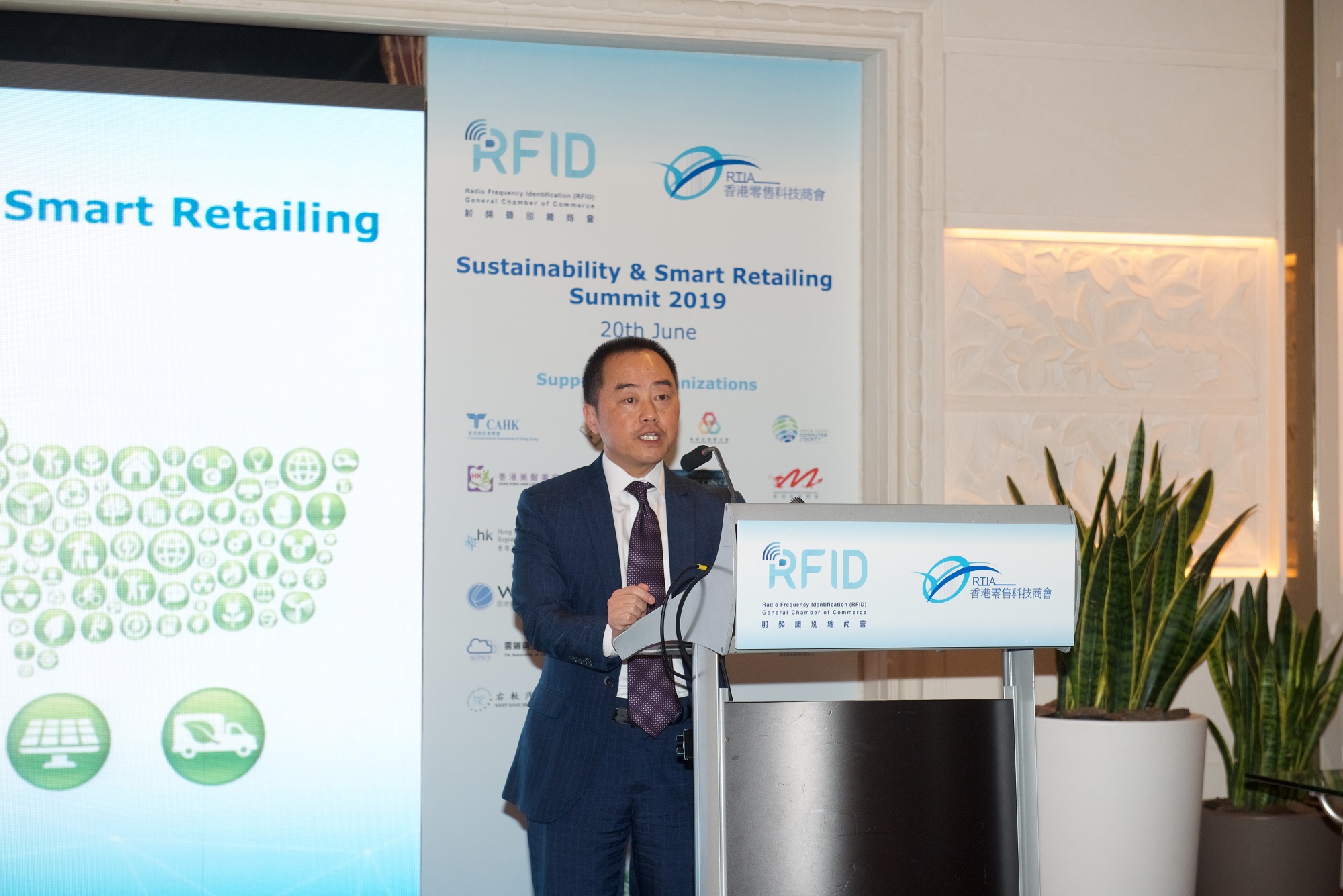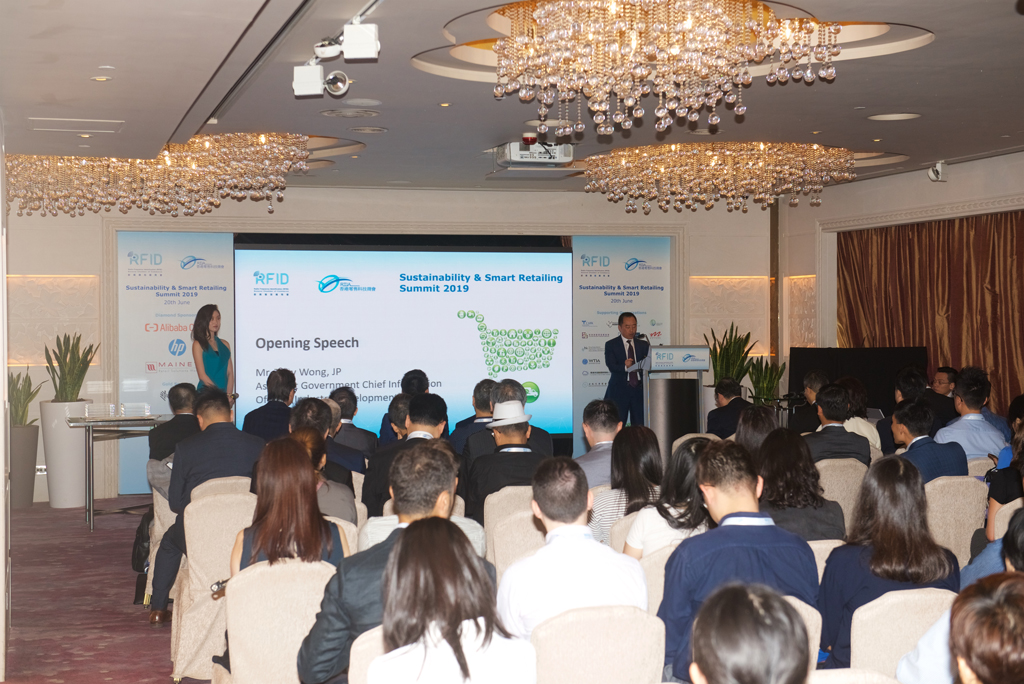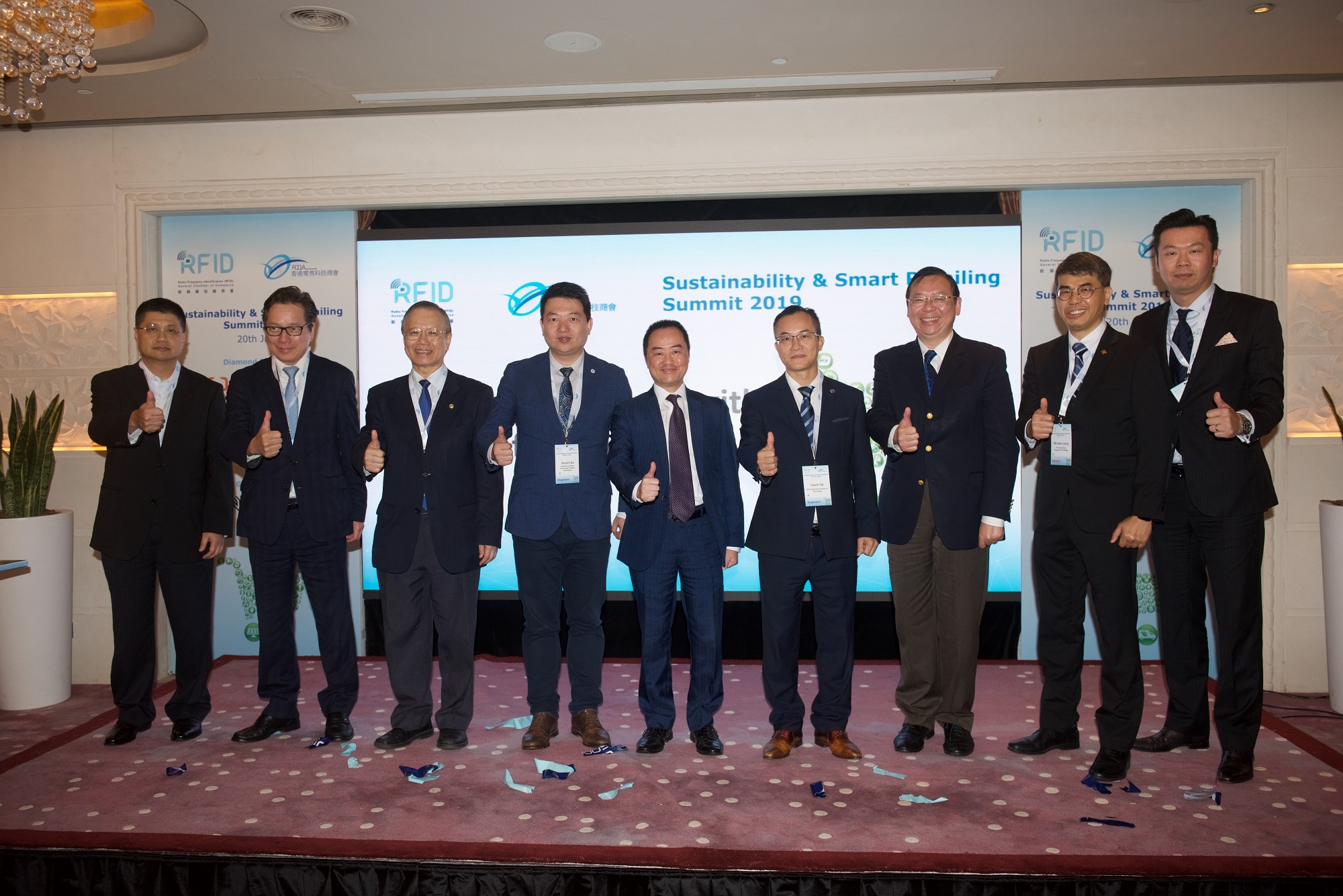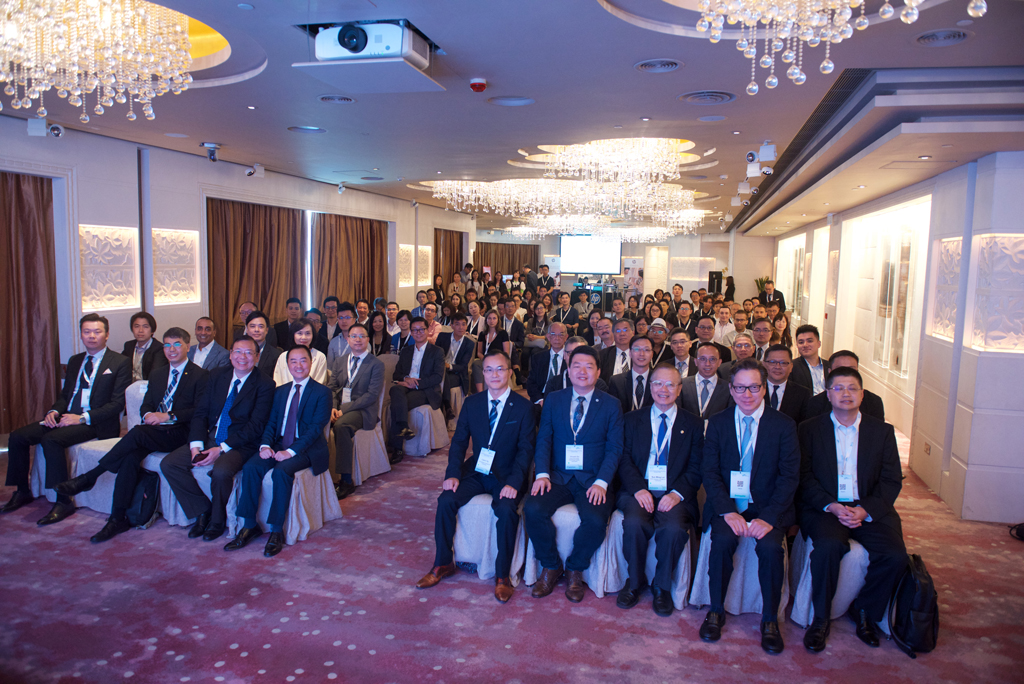Speech by Mr. Tony Wong, JP, Assistant Government Chief Information Officer (Industry Development), at the “Sustainability & Smart Retailing Summit 2019” (with photos)
Calvin (Mr Calvin Yip, Chairman of Radio Frequency Identification General Chamber of Commerce), Vincent (Mr Vincent So, Chairman of Retail Technology Industry Association), distinguished guests, ladies and gentlemen,
Good morning! First of all, I would like to thank the Radio Frequency Identification (RFID) General Chamber of Commerce and the Hong Kong Retail Technology Industry Association (RTIA) for inviting me to join you all at the Sustainability & Smart Retailing Summit 2019.
The focus of today’s event is to examine how the retail sector can enhance customer experience and operational efficiency by harnessing new technologies. This is indeed a very relevant topic in this digital age. The advancement of technology has changed how we live and work. It also plays a crucial role in transforming business processes and opening up new business opportunities. Companies that adopt innovative technologies will surely have an edge over conventional ones to reach out to customers in a more precise and rapid manner, deploy services more flexibly, analyse customers’ needs and exceed customers’ expectation with novel offerings. According to the latest forecast from Gartner, the global retail sector will increase its technology spending by 3.6 per cent to reach US$203 billion in 2019. It is expected that the same growth rate will continue for the next two years.
A major transformation empowered by technology is the rapid development of e-commerce. With the ubiquity of smartphones, new media and online channels, consumers are no longer constrained by brick-and-mortar stores. The array of online channels always comes with enormous economies of scale, highly customized experience and unlimited business opportunities.
According to a survey commissioned by KPMG China and GS1 Hong Kong and conducted in 2018, consumers in Hong Kong and other cities across the Greater Bay Area have seen themselves as “smart consumers”, who are tech-savvy shoppers and confident in their own abilities in using digital devices. In Hong Kong, one out of five consumers expects their online spending to overtake their offline spending in 2019.
These “smart consumers” also aspire to the power of technology in making a smarter city, such as smart payment methods, smart environment and the smart use of new technologies like Artificial Intelligence (AI), sensors and Internet of Things (IoT).
The Government is committed to developing Hong Kong into a smart city leveraging on digital technologies. We released our first Smart City Blueprint for Hong Kong in December 2017. It outlines over 70 initiatives under six major areas, namely “Smart Mobility”, “Smart Living”, “Smart Environment”, “Smart People”, “Smart Government” and “Smart Economy”. I will highlight a few relevant initiatives for your reference.
For example, the Hong Kong Monetary Authority (HKMA) launched the Faster Payment System (FPS) in September last year. The system not only facilitates banks and stored value facility (SVF) operators in handling retail payments, but also enable fund transfers and payments by customers anytime and anywhere using mobile phone numbers or email addresses. Furthermore, HKMA has introduced a common QR code standard to facilitate merchants to accept payments for different SVF operators.
The Government is planning for the use of FPS to provide the public with greater convenience in paying taxes, rates and water charges. The service is expected to be available later this year. The public can scan the QR codes on the bills through various mobile applications of banks and e-wallets to make payments simple and convenient. Besides, the Government is examining the feasibility of accepting payments through FPS at the shroff counters of several departments on a pilot basis as well as to enable app-to-app payments.
In addition, our Office is working intensively on a number of key infrastructure projects that will help promote e-commerce and build Hong Kong into a smart city.
A key initiative that will bring significant benefits to Hong Kong is the provision of electronic identity (eID) to all residents for free. eID is a digital identity authentication allowing people to access e-Government services or conduct online commercial transactions. Through a single login, online services can be accessed conveniently anytime and anywhere. Apart from the convenience brought to users and the cost savings to service providers in reducing counter service, eID provides an impetus for business transformation in the provision of customer services. eID will also encourage customers to use more online services such as online banking and online shopping and thus promoting the development of e-commerce and offering more business opportunities for the retail sector.
The development of the eID system is underway. Upon its launch in the middle of next year, eID will be used in 26 e-Government services such as the Patient Portal of the Electronic Health Record Sharing System (eHRSS), eTAX, renewal of driving licence, etc. We expect that by mid-2021, most of the e-Government services will adopt eID, and by 2023 all e-Government services will use eID as their only or primary login means.
Our office is exploring with different organisations on the adoption of eID in their services, such as outpatient appointment booking and payment services of the Hospital Authority. We will provide interested organisations with the technical information on eID related application programming interfaces (APIs) in the third quarter of 2019, with a view to enabling them to consider and plan for enhancement of their information systems for adopting eID in future.
We will also make available testing environment before the end of this year and invite interested organisations to participate in the testing of eID adoption in their online services on a pilot basis. Public and private organisations can make use of the eID user authentication function to help simplify and enhance their online service workflow and to develop more innovative and convenient online services. This in particular can save the cost and time of SMEs that would have been required to develop their own online user authentication systems.
To leapfrog the development of a Smart Government, we have recently set up a Smart Government Innovation Lab (Smart Lab). The Smart Lab provides a platform for encouraging innovative solutions and product suggestions from the IT sector, particularly local tech start-ups and SMEs, to address public service delivery and operational challenges. By connecting service needs of individual departments with quality solutions from the industry, this new facility will promote wider adoption of innovative technologies in the Government to enhance city management and provide better public services for citizens, and can also create more business opportunities for local industry.
Technology unlocks great potential in driving the development of a modern, sustainable and efficient smart city. It’s high time that companies in the retail sector look into the potential of digital technology for staying ahead in this highly competitive and challenging business world.
Today’s event makes a good occasion for us to explore how best we can adopt technology to advance the development of every organisation and business. I am sure distinguished speakers at this Summit will give us valuable insights on this very important topic.
I wish you all a fruitful experience. Thank you.
- ENDS -







